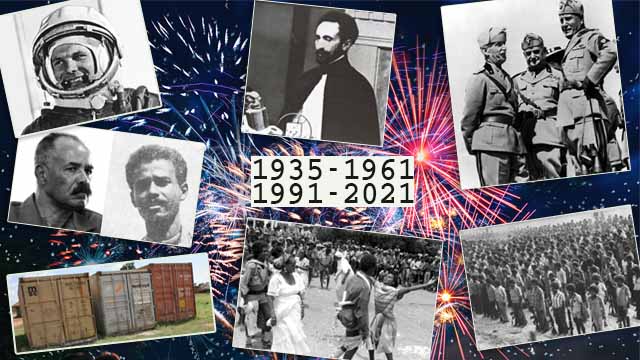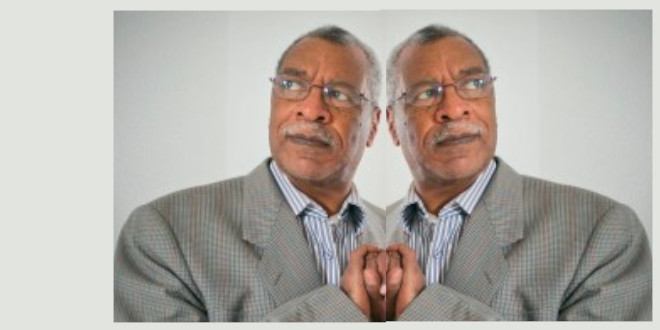Internal factors in the issue of land, equity and Language
Recently there have been a number of articles written about the problems of land, equity and Arabic in Eritrea.
Most of the writers have blamed Eritrea’s dictator for the problems, thus referring only to an external factor. However, I believe that there are also internal factors involved, and if we want to solve these problems we must address both the internal and external factors.
When Mufti Ibrahim Al-Mukhtar (it is Al-Mukhtar and not Mukhtar as written in the Eritrean Covenant) was approached by a group of Eritrean Muslims who emphasized only the issue of an external factor as the cause of the problems of their days, his answer was: Let us solve the internal factor first!
Land
Internal Factors
The weakness
Eritrea’s dictator doesn’t grant land in Gash Barka to the highlanders for free. He needs cash; thus, anyone with cash can acquire land. So do only Christian highlanders have money and not the Muslim ones? There are Eritrean Muslims from Europe and Australia who have built houses on the outskirts of Cairo; why are these people, some of them are from Gash Baraka, not investing in land in their own country.
The argument lacks any logic
- Not all Eritrea’s highlanders are Christians. So if a Muslim from the highlands buys a plot of land, will he be referred to as a land grabber? Or is it ok to give land to a Muslim highlander and refuse it to a Christian highlander? Wouldn’t that be discrimination?
The marginalization of Eritrean Muslims in Eritrean government positions
An argument with only statistical emphasis won’t solve our problems. Statistics are useful and can support an argument, but they are not enough if they are not backed by historical and social perspectives of the problem and, above all, they won’t be helpful if they fail to recognize any internal factors.
Historical Perspective
The root of the problem
Emperor Haile Selassie initiated the policy of marginalization of Muslims in Eritrea.
Just after taking power, the EPRDF authorities revealed a memo from the days of the late emperor in which he instructs his ministers to undermine Muslims. Even prior to that memo, the emperor had made it clear that when it came to Eritreans he preferred the Christian ones.
To say that the dictator in Eritrea created the marginalization is unfair and doesn’t solve the problem. Given that half of the dictator’s ministers and ambassadors are Muslim, one doubts that the sole cause of the marginalization is the dictator. If we argue that these Eritrean Muslim ministers or ambassadors are his puppets then we have to wonder how he is able to orchestrate the marginalization of Muslims with the help of Muslims. There is not any anecdotal evidence, either, from those high-ranking Muslim officials who abandoned the regime to support any systematic marginalization of Muslims in Eritrea. As in the case of land distribution, the dictator’s main objective in hiring or firing Muslims or Christians is not to benefit one or the other but, rather, to prolong his hold on power.
Geopolitics
Geography has made the majority of highlanders Christians and lowlanders Muslims. It also made the lowlands the origin and stage of our war of independence. As a result, the highlands of Eritrea saw the building of more roads, schools and other infrastructure that were funded by the emperor. When the children of every highland city and village were running to schools the children from the lowlands were running to Sudan to save their lives. After 30 years, the children of the highlanders have become professionals in every field imaginable. The emperor was always on their side.
The right of the Eritrean lowlanders to return is the core issue to be emphasized. When they return with many of their second and third generation Arabic-educated children the issue of language and marginalization will be eliminated.
Social Perspective
There had been a backward attitude towards modern education among many Eritrean Muslim families. With the exception of a few, families were reluctant to send their children to school for fear they might abandon their own religion. The issue of teaching girls was even worse. Thus a Muslim student was stuck between the parents’ distrust of modern education and the emperor’s segregating of the schools.
Even nowadays we may observe a similar situation to the one mentioned above where some Eritrean Muslims with extreme religious views with regard to arts and sports, forbid female and/or male students to participate in sport or arts clubs. Such extreme views close the door on the building of self-esteem and the expression of creativity among children. Are not we marginalizing ourselves here?
Internal Marginalization
The other internal factor involved in the marginalization of Eritrean Muslims is connected to Muslim on Muslim relations; we have also been marginalizing one another. Instead of using our diversity positively, we have used it negatively. Tribalism still exists among us. As a result certain Muslims are doubly marginalized.
We can’t deny it. The argument here is not to emphasize the magnitude of tribalism by saying it is or is not less than before, but to acknowledge it as part of the problem. It is only when we acknowledge our own mistakes that we can reach solutions.
Arabic Language
When we call for Arabic to be an official language along with Tigrigna, we musn’t forget the need to be bilingual: Arabic and Tigrigna speakers. So are we promoting the two languages? Are we learning Tigrigna and promoting Arabic among Tigrigna speakers? Moreover, are we ourselves and our children learning and improving Arabic and Tigrigna and other Eritrean Languages? If our effort is limited only to politicizing Arabic, then we are not helping to make it official. Recently Asmara saw workshop on Arabic. Even though many agreed that this workshop was held for political reason, they didn’t provide an alternative.
Countries like Nigeria which have made English their official language have produced excellent writers such as Chinua Achebe and Wole Soyinka. Have we any in Arabic? Generally speaking, we have also failed to enrich the language through arts and literature, which are the backbone of language. Instead of encouraging our singers, writers and actors, some are discouraging them because of their extreme religious views towards singing or writing or acting in Arabic or other Eritrean languages. Are not we here marginalizing Arabic?
Message to the writers
Even though writers such as Ali Salim, Ahmed Raj and the Eritrean Covenant have made Eritrean Muslims the subject of their issues, they have failed to indicate what our religion says and provide solutions to the issues. Many Eritrean Muslims like me seek possible solutions from our ulema (scholars) to the issues the writers have raised, solutions welcomed not only by Muslims but also by Christians and others.
The writers have failed:
- To consult Ahl-El-Ilm (persons whose knowledge and experience of the matters of a nation and religion are trusted by the majority) who can provide opinions that have benefits now and hereafter.
- To show if shura (discussion) was conducted before reaching their conclusions. It is not possible that shura was done as the writers of the Eritrean Covenant have claimed. Shura is always accessible, credible and reliable. I disagree with Ustaz Mahmoud’s statement that there had been discussions among Eritrean Muslims to word the Eritrean Covenant document.
- To demonstrate the ability to prioritize issues or Tartib Alaweliyat: “What is the most important issue at the moment?”
I don’t intend to do the homework of these writers, but if they want the opinion of our ulema, they can research the works of the esteemed Sheik Ibrahim Al-Mukhtar. They may also consult another expert, Fahmy Huweydi, one of our few contemporary Muslim thinkers. In 1989, Fahmiy Huweydi wrote in his book Islam and Democracy that a group of Eritrean Muslims approached him to complain about Esayas Afeworki’s attitude to Muslim values . He asked them what Esayas was doing overall. They told him that he was fighting for Eritrean independence. His short, simple and clear answer was “the issue of the independence comes first and you have to fight with him to free Eritrea from Ethiopia.”
When a person speaks in the name of Eritrean Muslims he or she must not forget that the subject here is a people with a religion that teaches them to avoid insulting and making mockery of others.
Avoid hate and discus the issue as if it were an Eritrean issue (i.e., Muslim and Christian. We are not strangers to one another.
Finally I would like to say that the elimination of dictatorship in Eritrea and the establishment of a democratic government that respects the rules of law and human rights is the number one priority for Eritrean Muslims. It is our religious and national responsibility to work with our Eritrean Christians and others to achieve this goal.




Awate Forum